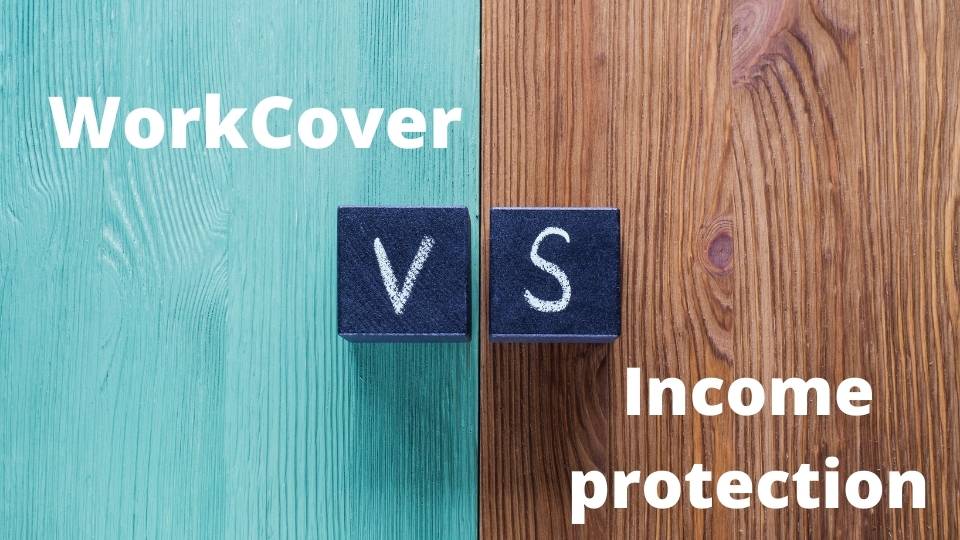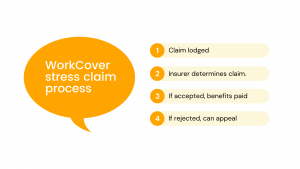WorkCover or income protection?
WorkCover is designed to assist people if they’ve been injured or suffered a condition that has some connection to employment.
Income protection is a type of insurance that is designed to pay you a regular benefit if you can’t work because of an illness or injury. There does not need to be a connection to employment.
Determining which one is more appropriate for you, requires looking at the bigger picture.
Income protection will cover you for a proportion of lost income (it could be 75% or 85% of your earnings) for a set period of time. That is all an income protection benefit can do for you.
A WorkCover claim can also cover you for a proportion of lost income (how much varies depending up how long you’ve been on payments – it could be 95% or 80%) for a set period of time.
However, WorkCover can also pay for medical expenses, as well as pay you one or two lump sum benefits.
If all you want to do is be compensated for some lost earnings, then an income protection claim might be all you need.
However, if you want to claim more than that (or you may want to at some point in the future), then a WorkCover claim might be a better choice for you.
Lets look at the pros and cons of both:
Table of Contents
WorkCover +
- If your claim is not disputed, it can be processed and accepted within a month.
- May receive payments for longer.
- If no work capacity, can continue to receive payments.
- If have a permanent impairment can pursue an impairment lump sum claim.
- If injury caused by someone else’s negligence, can pursue a common law lump sum claim which can compensate you for pain and suffering and also compensate you for lost earnings into the future (eg: to retirement age).
- Can receive payments for medical expenses.
- In some instances, WorkCover can pay for retraining if you can’t return to your old job.
- Some protection from termination of employment while on WorkCover. The employer must offer you suitable duties for a period of at least 52 weeks.
- Surgery can be paid for (read more about that here).
- Potentially can get 100% of wages paid (if you’re under an instrument where your employer is required to pay top up money – usually under an EBA).
WorkCover –
- Claim may be rejected and you may need to fight to have it accepted. This might mean a delay if a few weeks, or potentially months. You may end up proceeding to conciliation, or the medical panel or even court. You can read more about how long a WorkCover claim can take here.
- Will need to get a WorkCover certificate from your doctor every month in order to be paid income benefits.
- Insurer may organise an appointment, or more than one, for you to be medically assessed.
- In most instances, not entitled to 100% replacement income. You can read more about that here.
- Potential impact on your employment.
Income protection +
- If WorkCover claim is likely to be disputed due to whether the injury is related to employment, this is not likely to be the case with an income protection benefit.
- You’ve paid for income protection benefits (either because you took out a stand alone policy, or because it’s connected to your super policy) – so you may as we use it given you’ve paid for it.
- Certainty on the amount you’ll receive.
- May cover you if you’re self employed and satisfy certain criteria. Generally you must work for at least 20 hours per week and have been self-employed for at least 12 months. You will need to provide some form of evidence to the insurers surrounding your earnings
Income protection –
- There may be a waiting period before payments commence (depends on what your policy says). This is agreed upon when you enter into the policy, and could be up to 3 months.
- May only get paid 75% – 85% of your normal income.
- May not have an entitlement if employed on a part time or casual basis. Generally, you will need to be employed at least 20 hours per week and to have been in the same job for at least 12 months. The benefit is based on your pre-tax income after other associated expenses have been taken into account.
- Income protection benefit period may end while you still require financial assistance.
- If you decide on pursuing an income protection claim and then later on decide to pursue a WorkCover claim, if you wish to claim weekly payments from the WorkCover, you’ll need to pay back all benefits received under your income protection claim. Copyright – this is original content from TheWorkInjurySite.com.au.
Conclusion
There are pros and cons to both a WorkCover claim and an income protection claim.
If all you want to do is get some financial assistance for a limited period of time, an income protection might be the way to go.
If you’re wanting to claim income replacement benefits for potentially a longer period of time, or want to get medical expenses paid for, or want to be compensated by way of a lump sum, then a WorkCover claim may suit you better.
If you decide to lodge a WorkCover claim but you’re not quite sure how to do so, our new WorkCover claim lodgement pack may help.
Further reading:








